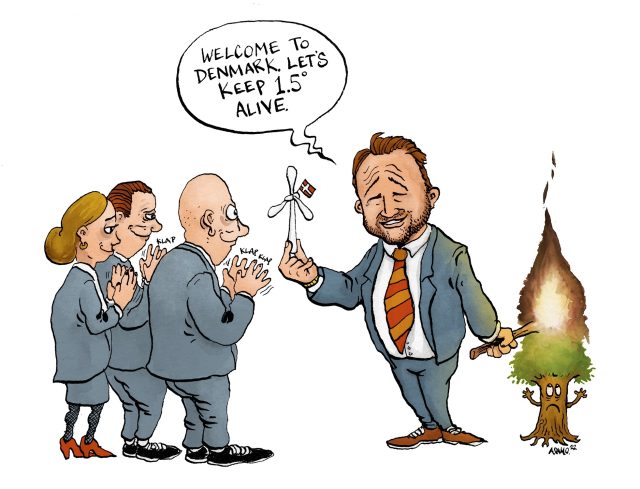
Among the different Commissioner-designate candidates proposed by Ursula von der Leyen for the 2024-2029 term, the Danish Dan Jørgensen will appear the European Parliament’s Industry, Research, Energy (so called “ITRE”), Employment and Social Affairs (abbreviated as “EMPL”) committees on 5 November.
Mr. Jørgensen was born in 1975. In 2004 he was elected a Socialist Member of the European Parliament, where he served for nearly 10 years. From 2013 onwards, he has been successively appointed Minister for Food, for Climate, Energy and Utilities, and for Development Cooperation and Global Climate Policy in his native country.
He defends the phasing out of fossil fuels, as well as the creation of an EU-wide CO2 tax. As a Commissioner, he is likely to increase emission targets and produce higher costs for businesses and families. He supports the EU leading the world by example in the “green transition”, letting other major emitters such as China and the US get away with lesser standards.
Surely public spending will increase under his tenure, with alleged investment in renewable grid infrastructure. Such higher cost projects go hand in hand with the implementation of the Energy Renovation Directive, obliging owners of buildings to spend in insulation or window replacement.
Consequently, dark clouds of job losses and of forced national decisions loom behind the potential appointment of this left-wing political scientist convinced about the environmental revolution.
Before his appearance before the Parliament next Tuesday, he has already been submitted to ten written questions, which have taken him fourteen pages to respond. That is, an average of one and a half pages to respond each question.
On his competence for the job, he returns to his leit-motiv: “The green transition is an environmental imperative”. Yes, we are in front of a Green Imperator, an Emperor of Ecology. Nevertheless, he recognises that this poses “main challenges to the EU”.
To address the housing crisis, he has announced a first-ever European Affordable Housing Plan. However, behind such bombastic name we only see “technical assistance”, “promotion of investments”, “focus on skills for the housing sector” and “a strategy for housing construction”. A Plan strong on paper, but that’s it.
Mr. Jørgensen also presents us with an Action Plan for Affordable Energy. The reader could naturally understand that, as per its name, it might help consumers in Europe access energy at an affordable price. Well, it rather refers to “energy sharing”.
All this seems in line with the candidate for the post of Executive Vice-President for a Clean, Just and Competitive Transition, Mrs. Teresa Ribera from Spain, also a Socialist. She has announced social housing measures for “disadvantaged citizens or socially less advantaged groups”, surely a euphemism for immigrants.
Interestingly, the candidate announces a Roadmap towards ending Russian energy imports. Yet again, we have no clue what this roadmap will look like, absolutely nothing but a name.
He allows for “a considerable contribution from nuclear energy”, particularly coming from Small Modular Reactors. Whether this means also that non-Small Modular Reactors will be regarded with un-keen eyes by himself and his team remains to be seen.
The European Parliament committee on Internal Market and Consumer Protection has asked him about short-term accommodation rentals in relation to touristic demand, but basically he has not responded to the question.
Finally, he insists on the renovation of buildings based on their energy performance as a supposedly most efficient way to spend public money. Perhaps it would be more efficient, from the point of view of nationals and their families, to spend public money in a strategy to boost the offer of real estate to individuals and businesses so that the alleged housing crisis is really tackled.
Source of image: Noah



 Subscribe
Subscribe